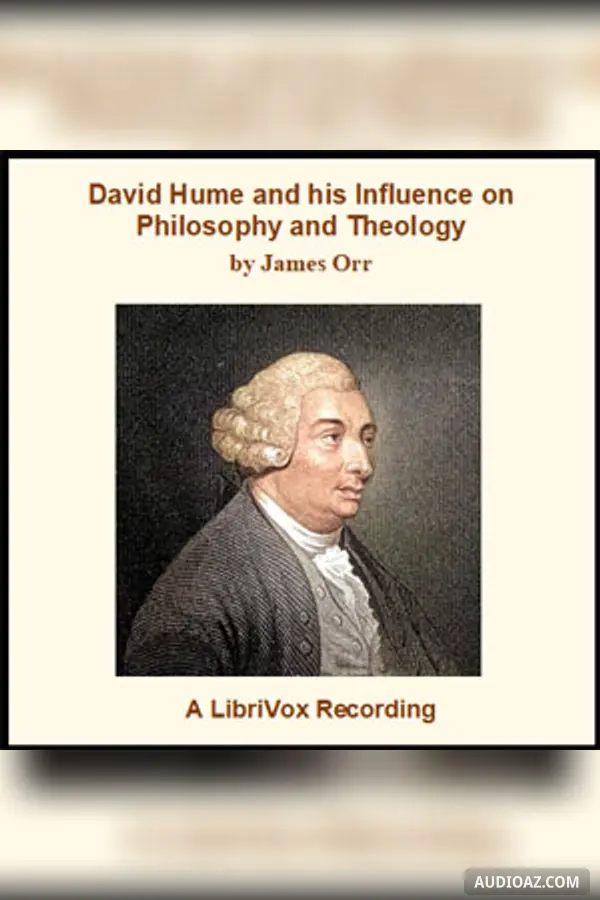
David Hume and his Influence on Philosophy and Theology - Sách nói Miễn phí
Tác giả: James Orr
Ngôn ngữ: English
Thể loại: Tiểu sử & Tự truyệnHiện đạiPhi hư cấuTriết học
1 / 11Introductory
- 1. Introductory
- 2. Life of Hume 1. Till the Publication of the Treatise
- 3. Life of Hume 2. Literary Labours till the Publication of the History
- 4. Life of Hume 3. From the Publication of the History till his Death
- 5. Hume in Relation to Previous Philosophy - His Scepticism
- 6. Hume and the First Principles of Knowledge
- 7. Hume on Cause and Effect: Free Will
- 8. Hume on Substance: The Material World: the Ego
- 9. Hume on Morals: Utilitarianism
- 10. Hume and Theology: Miracles
- 11. Hume's Miscellaneous Writings: Political Economy - Hume as Historian
Giới thiệu
David Hume justly takes rank as the most distinguished member of that brilliant circle of literary men whose names gave such a lustre to the second half of the eighteenth century in Scotland. His speculations were the most profound, and, with the possible exception of Adam Smith in a particular department, his influence was the widest and most deeply felt, of any. But even his warmest friends could scarcely have predicted the influence he was destined to exercise, or the important results that were to spring from his thoughts. It required time to clear away the mists that had gathered round his name, and to place him in his true light in the eyes of posterity. At a century and a half’s distance, we are in a better position to take an impartial survey of his work and its effects. The result must be, that, however we may judge of Hume in particular respects, we cannot deny to him a right to the title of a great and independent thinker. It is indicated in the text that the point of view from which Hume’s philosophy is mainly regarded is that of an experiment to explain knowledge, and generally the intellectual and moral outfit of man, without the assumption of a rational nature in man. - Summary by Preface and Introduction
Bình luận
Hãy là người đầu tiên bình luận
Chưa có bình luận nào về nội dung này. Hãy bắt đầu cuộc trò chuyện!
Khám phá thêm
Thẻ: David Hume and his Influence on Philosophy and Theology audio, David Hume and his Influence on Philosophy and Theology - James Orr audio, Tiểu sử & Tự truyện audio, Hiện đại audio, Phi hư cấu audio, Triết học audio, free audiobook, free audio book, audioaz






